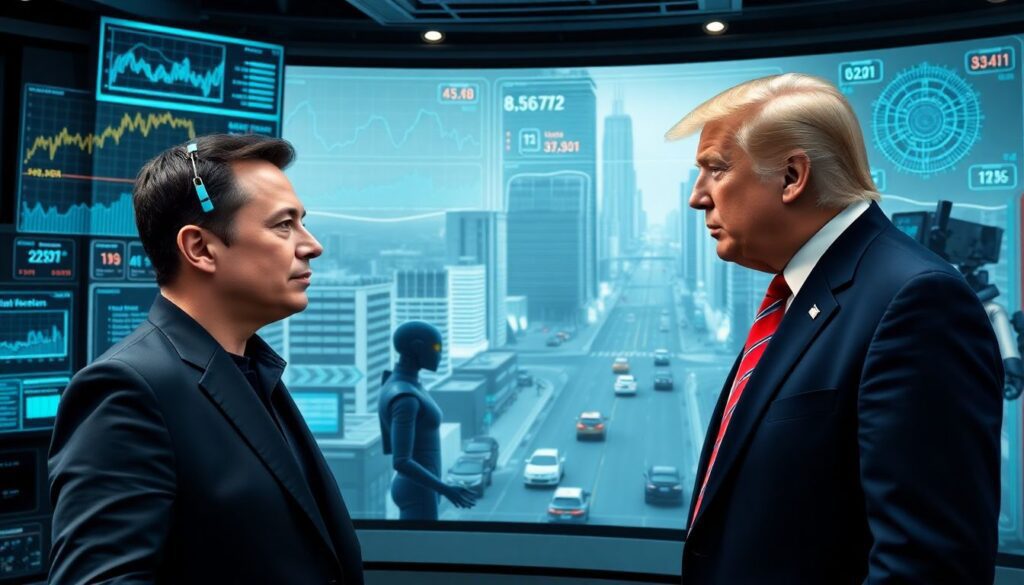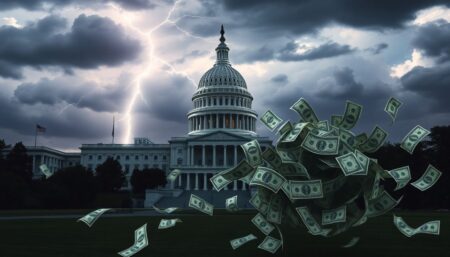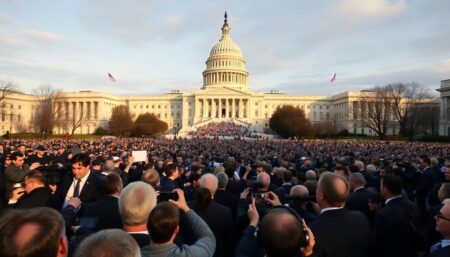Welcome to this fascinating exploration of politics, technology, and ideologies. In this article, we’ll delve into the intriguing alliance between former President Donald Trump and tech mogul Elon Musk, examining how their partnership could reshape the political landscape and societal structures. Buckle up as we navigate through the complexities of techno-libertarianism, the future of AI, and the potential implications for US democracy.
Exploring the intersection of political power, economic influence, and technological ambition
Imagine, if you will, a scene straight out of a science fiction epic. Elon Musk, the visionary entrepreneur, stands tall and confident, his eyes scanning a array of holographic displays that dance and flicker with graphs, charts, and AI-generated predictions. Beside him, a stark contrast in both stature and demeanor, is Donald Trump, the former president, his gaze fixed on the futuristic spectacle, a hint of curiosity in his eyes.
The control room hums with an undercurrent of technological prowess, a symphony of algorithms and circuits that paint a picture of a world yet unseen. Holographic interfaces shimmer in the air, each a testament to the boundless potential of human innovation. Behind them, a vast cityscape sprawls, bustling with flying cars that dart and weave like mechanical dragonflies, while robotic figures patrol the streets with a steady, methodical precision.
It’s a tableau that blends the unlikely and the inevitable, the clash of two titanic figures from vastly different worlds, united in a single, futuristic frame. The air crackles with possibilities, with the sense that here, in this high-tech control room, the future is not just a distant dream, but a tangible reality, ready to be shaped by the hands of those bold enough to reach for it.
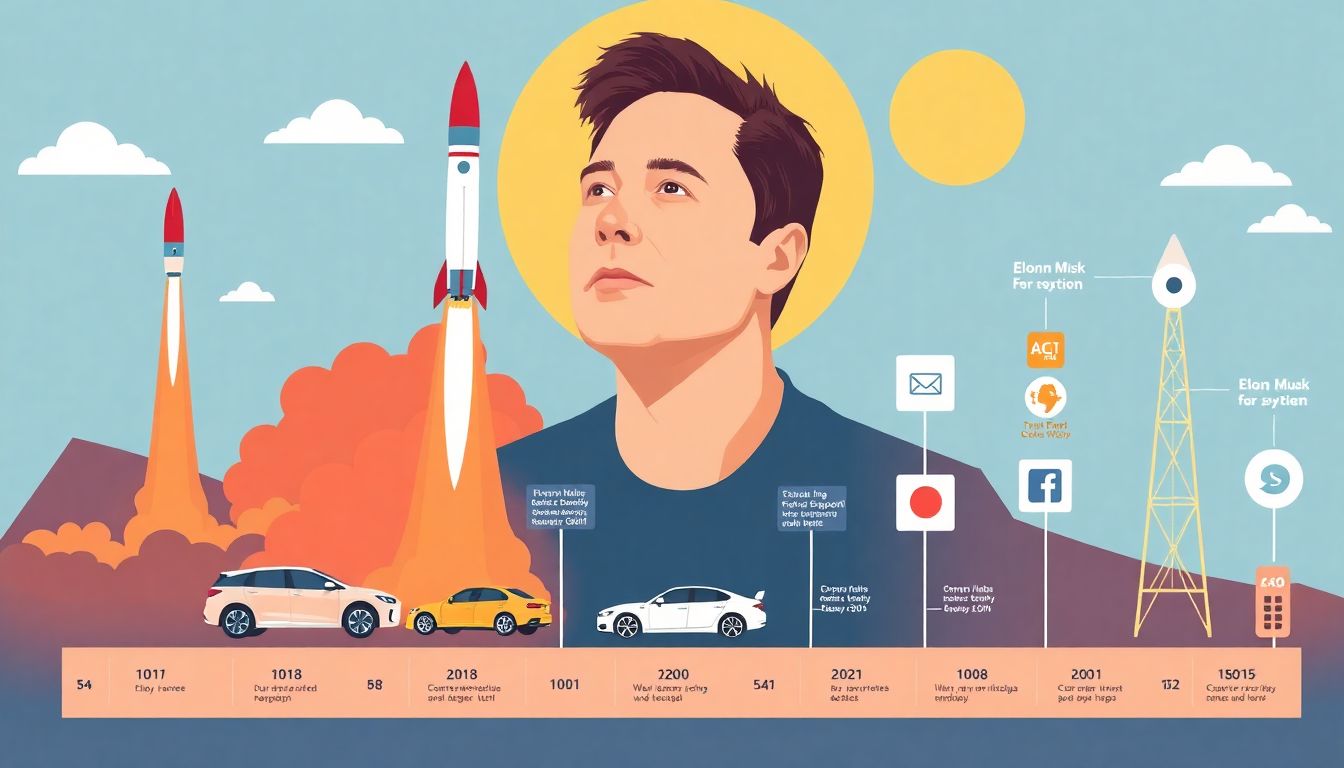
The Rise of Elon Musk
Elon Musk’s journey from a precocious child to the world’s richest man is a testament to his unyielding ambition and innovative spirit. Born in South Africa, Musk displayed an early aptitude for computers and entrepreneurship. By the age of 12, he had already created and sold his first video game. His insatiable curiosity led him to pursue dual bachelor’s degrees in physics and economics, followed by a brief stint at Stanford for a PhD in energy physics. Musk’s entrepreneurial journey began in earnest with the co-founding of Zip2, a web software company, which he later sold for a substantial profit.
Musk’s major achievements span across several groundbreaking companies. In 1999, he co-founded X.com, an online bank that later merged with Confinity to form PayPal, revolutionizing digital payments. In 2002, Musk founded SpaceX, with the ambitious goal of making space travel more accessible and affordable. SpaceX has since achieved numerous milestones, including becoming the first private company to send astronauts to the International Space Station. Additionally, Musk’s leadership at Tesla has transformed the automotive industry, accelerating the world’s transition to electric vehicles and sustainable energy. Under his guidance, Tesla has become one of the most valuable companies in the world.
Recently, Musk has taken on a new role as the head of the Department of Government Efficiency (DOGE), aiming to streamline bureaucratic processes and enhance efficiency within the government. This position allows him to leverage his innovative thinking and strategic acumen to drive meaningful change in public policy. His influence extends to critical areas such as AI and cryptocurrency policy. Musk has been a vocal advocate for responsible AI development, emphasizing the need for regulations to ensure safety and ethical use. Similarly, his endorsement of cryptocurrencies like Bitcoin and Dogecoin has sparked widespread interest and debate, shaping the future of digital currencies.
Throughout his career, Musk has consistently pushed the boundaries of what is possible. His visionary approach has not only disrupted multiple industries but has also inspired a new generation of innovators and entrepreneurs. As he continues to lead SpaceX, Tesla, and now the DOGE, Musk’s impact on technology, sustainability, and government efficiency is undeniable. His journey serves as a reminder that with relentless determination and a pioneering spirit, one can achieve extraordinary feats and shape the future.
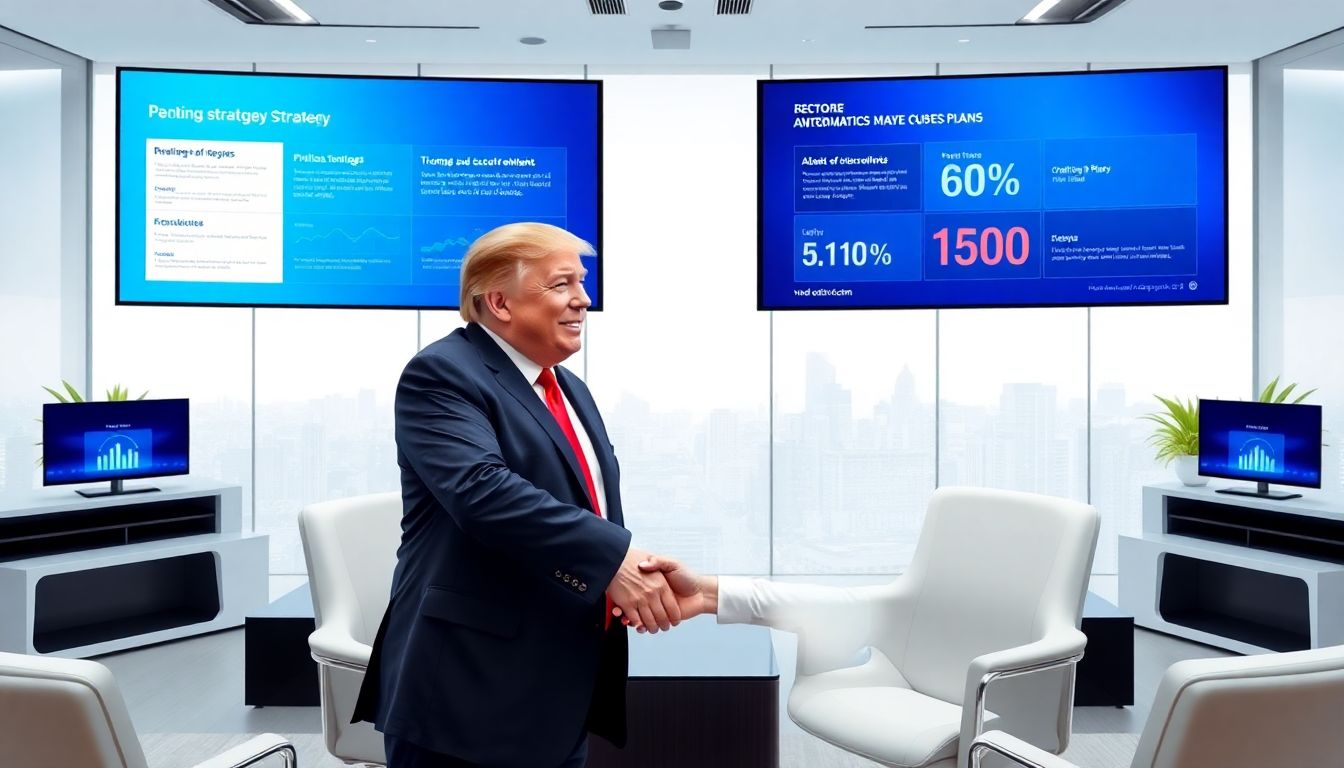
The Trump-Musk Alliance
The political landscape in the United States has witnessed an intriguing alliance between former President Donald Trump and tech mogul Elon Musk. This alliance is a fascinating intersection of politics and business, each with their own dynamic influences. Musk, known for his innovative ventures like Tesla and SpaceX, has emerged as a significant figure in Trump’s political sphere, playing a crucial role in his electoral success.
Musk’s role in Trump’s electoral success can be attributed to several factors. Firstly, Musk’s public endorsements and positive remarks about Trump’s policies, particularly those related to business and innovation, have resonated with a segment of voters who admire Musk’s entrepreneurial spirit. Additionally, Musk’s companies have benefited from Trump’s administration policies, such as tax cuts and deregulation, which Musk has publicly acknowledged. This mutual benefit has strengthened their alliance and positioned Musk as a close advisor to Trump.
The impacts of the Trump-Musk alliance on US democracy are multifaceted. On one hand, Musk’s influence could bring a fresh perspective to policy-making, particularly in areas like technology and innovation. His advisory role could lead to policies that foster technological advancements and economic growth. However, critics argue that this alliance could also lead to an imbalance in the system of checks and balances. Here are some points to consider:
- Increased influence of corporate interests in political decision-making.
- Potential conflicts of interest, given Musk’s business ventures.
- The risk of policies being shaped to benefit specific industries or companies.
The system of checks and balances is designed to prevent the concentration of power and provide oversight. However, the Trump-Musk alliance raises questions about the effectiveness of this system. While Musk’s input could drive progress, it is essential to ensure that policies serve the broader public interest, rather than benefiting a select few. The alliance’s impact on US democracy will depend on how well the system of checks and balances can adapt to this new dynamic and ensure accountability.

Techno-Libertarianism and Its Roots
Techno-libertarianism, a blend of technological utopianism and libertarian politics, has intriguing origins that can be traced back to some unexpected places. One of the most surprising connections is with Apartheid South Africa. During the late 20th century, South Africa was not only dealing with its oppressive apartheid regime but also cultivating a unique technological ecosystem. The isolation imposed by international sanctions led to a burgeoning tech industry, fostering a spirit of innovation and self-reliance that would later resonate with libertarian ideals.
This environment nurtured future tech entrepreneurs like Elon Musk, who grew up in South Africa during this period. The constrained political climate and the necessity of innovation to overcome barriers planted seeds that would later bloom into techno-libertarian thought. This ideology posits that technology, when left unfettered by government interference, can solve societal problems and create a more efficient, decentralized world.
Elon Musk is not alone in his techno-libertarian leanings. Peter Thiel, another prominent figure in the tech world, shares similar beliefs. Both Musk and Thiel exhibit several libertarian tendencies, such as:
- A strong belief in the power of the free market to drive innovation
- A skepticism towards government regulation and intervention
- An emphasis on individual freedom and autonomy
These principles are evident in their business ventures and public statements, where they often advocate for minimal government involvement and maximal entrepreneurial freedom.
At the core of their beliefs lies a profound faith in the transformative power of technology and AI. Musk’s ventures like SpaceX and Neuralink, along with Thiel’s investments in AI and biotechnology, reflect their conviction that technological advancements can overcome global challenges. Whether it’s colonizing Mars to ensure humanity’s survival or using AI to revolutionize healthcare, these tech entrepreneurs see technology as the ultimate solution to societal ills, embodying the essence of techno-libertarianism.
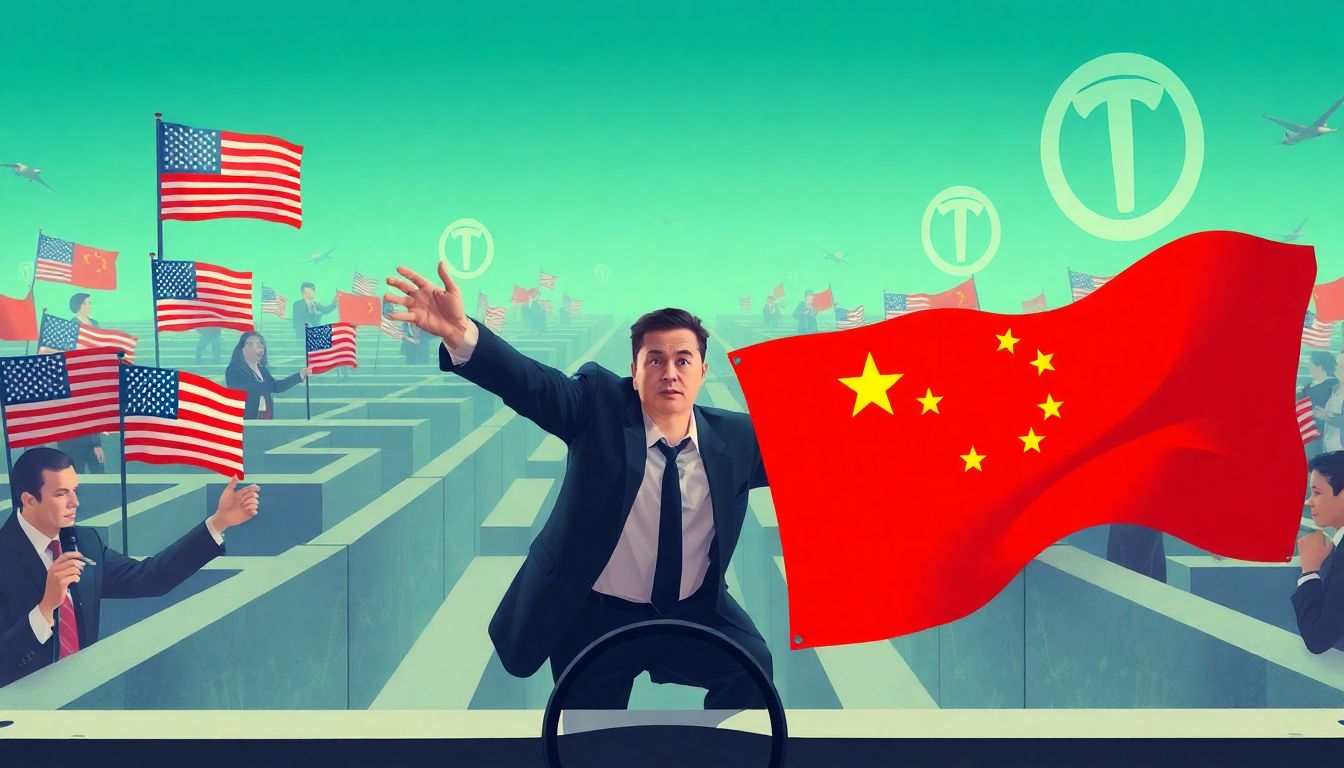
Challenges and Implications
Elon Musk’s techno-libertarian agenda, which advocates for minimal government intervention and maximal technological innovation, faces several challenges as it collides with the complex political landscape.
One of the most significant tensions is between Musk’s small-state ideals and the expansionist policies of former President Donald Trump. While Musk advocates for reduced government regulations, Trump’s administration often implemented protectionist and interventionist policies. This contradiction was evident in Musk’s criticisms of Trump’s immigration policies, which clashed with his own vision of a more open and merit-based system. Additionally, Trump’s tariffs on Chinese goods posed a direct challenge to Musk’s pro-China leanings, given his significant business interests in the country.
Musk’s pro-China stance presents another set of challenges. While he has praised China’s efficiency and work ethic, he has also faced criticism for turning a blind eye to the country’s human rights abuses. This raises questions about the potential influence of foreign governments on Musk’s companies and the broader implications for US national security and democratic values. Furthermore, Musk’s advocacy for reduced regulations and increased corporate influence could lead to a power shift, with corporations wielding more influence than democratically elected institutions.
The implications for US democracy are multifaceted. On one hand, Musk’s drive for innovation and efficiency could stimulate economic growth and technological advancement. On the other hand, his agenda could exacerbate income inequality, erode worker protections, and concentrate too much power in the hands of a few corporate entities. To mitigate these risks, it is crucial to foster open dialogue and robust regulation that balances innovation with public interest. Here are some key points to consider:
- The need for transparent and accountable corporate governance
- The importance of protecting worker rights and consumer interests
- The potential risks of foreign influence on US corporations
- The necessity of balanced regulations that promote innovation while safeguarding democratic values
FAQ
What is techno-libertarianism?
How did Elon Musk contribute to Trump’s electoral success?
What are the main targets of the new DOGE under Musk?
What are the potential implications of Musk’s techno-libertarian agenda for US democracy?
What challenges does Musk face in implementing his agenda?
- Balancing his small-state ideals with Trump’s expansionist policies through tariffs and subsidies.
- Navigating his pro-China leanings amidst increasing US-China rivalry and the presence of China-hawks in Trump’s administration.



